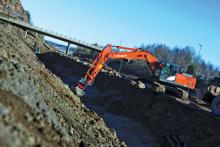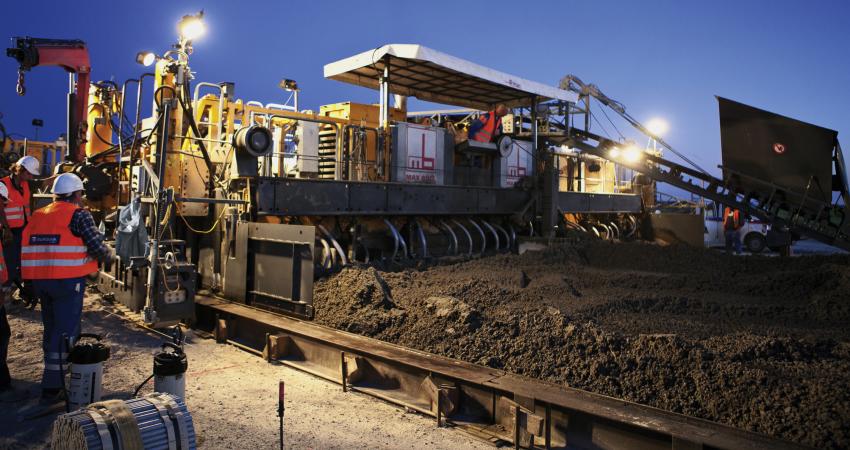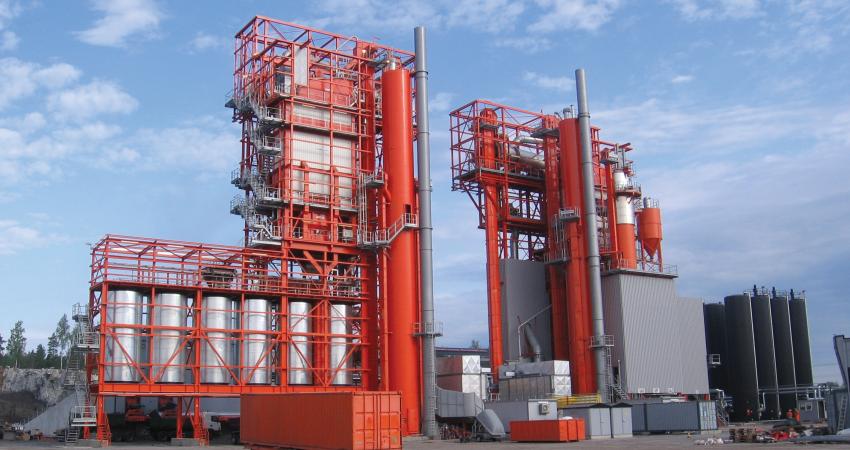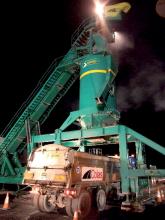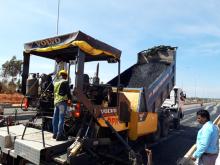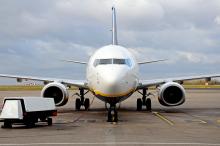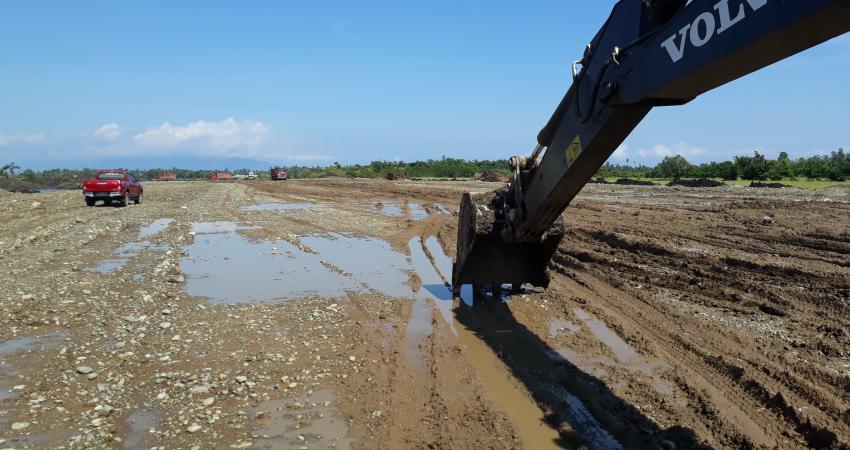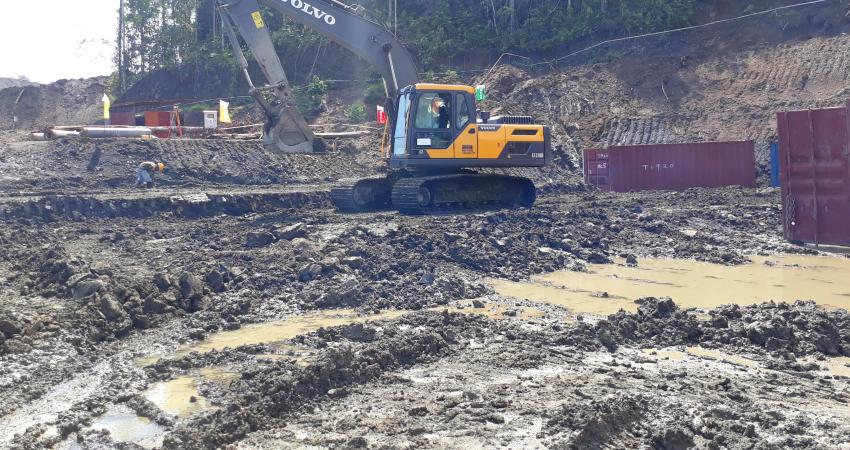
Resurfacing of Warsaw’s Chopin airport runway called for high performance materials, equipment and workmanship to ensure repairs were completed on time
With 100 scheduled flights a day landing at Warsaw's Chopin Airport's intersecting runways, it is Poland's busiest international airport. So when one of the runways and the crossing between the landing strips needed to be resurfaced, the airport operator wanted the repairs to be completed quickly.
Polish state-owned company Przedsi?biorstwo Pa?stwowe 'Porty Lotnicze' chose
The new fleet included
Work was spread over three weekends, with a tightly regulated time schedule, necessary because the airport runway had to be closed while paving was in progress. Logistics were pre-assigned by the airport authorities and could not be changed, regardless of weather conditions or paving problems, leaving Budimex little room for error during the project.
Budimex was required to pave one 950m runway (with a width of 70m) and 150m long, 23m wide, passage connecting two lanes at the airport. Multigrade asphalt cement mix was used for the rigid surface and around 100 to 150 trucks transported the asphalt to the site from four asphalt plants specially setup for the project. These were located close to the airport, working simultaneously to provide enough asphalt mix for the site.
On the first weekend the airport was closed for 50 hours. Larger planes were diverted away from the airport and smaller planes, which required only 1,300m runway space, were allowed to land.
Budimex laid around 13,500tonnes of multigrade asphalt cement mix, with a thickness of 50-450mm and mats above 100mm thickness were laid in several layers. Budimex achieved this task in just 24 hours.
On the second and third weekends the airport was only allowed to close for 30 hours, so Budimex laid around 8,500 - 9,000tonnes of asphalt at a constant thickness of 50mm.
Budimex project manager Ryszard Sikora said that the equipment fleet was key to the successful completion of the project. "We had no major breakdowns and the machines performed very well," he said. "We are very happy with the support we received from Volvo and the project went really well."

